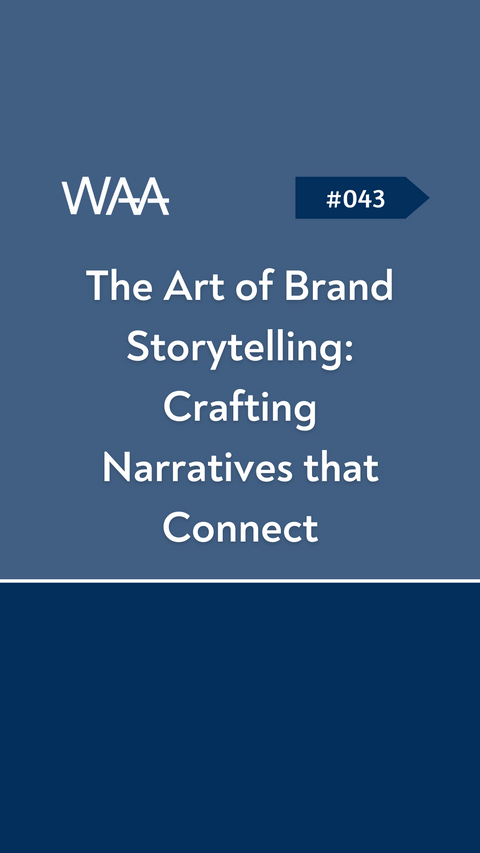
#043 The Art of Brand Storytelling: Crafting Narratives that Connect
Introduction:
In the digital age, where consumers are bombarded with information and advertisements, the power of storytelling has become increasingly crucial for brands to effectively engage with their audience. By harnessing the art of brand storytelling, businesses can create compelling narratives that connect with customers on a deeper level, building trust, loyalty, and emotional resonance. In this blog post, we will explore the importance of brand storytelling, the key elements of a captivating brand narrative, and how businesses can leverage storytelling techniques to enhance their branding and marketing strategies.
Why Brand Storytelling Matters:
-
Emotional Connection: Stories have the power to evoke emotions and create a strong connection with the audience. By sharing stories that resonate with their target customers' experiences, values, and aspirations, brands can establish a genuine emotional connection, fostering loyalty and advocacy.
-
Brand Differentiation: In a crowded marketplace, product features and prices can easily be replicated. Brand storytelling allows businesses to differentiate themselves by showcasing their unique history, values, and mission. Distinct narratives help brands stand out, attract like-minded customers, and create a lasting impression.
-
Memorable Brand Identity: Stories are memorable. When brands weave their narratives into their marketing efforts, they create a cohesive and memorable brand identity. Customers are more likely to remember a brand and its message when it is communicated through a compelling story.
Key Elements of a Captivating Brand Narrative:
-
Authenticity: Authenticity is at the core of successful brand storytelling. Customers crave genuine connections with brands they can trust. By sharing authentic stories that reflect the brand's values, experiences, and challenges, businesses can create an emotional bond with their audience.
-
Hero's Journey: A compelling brand narrative often follows the structure of the hero's journey. Just like the protagonist in a story overcomes obstacles and transforms, brands can position themselves as the guide or mentor, helping customers achieve their goals or solve their problems.
-
Consistent Messaging: Consistency is key in brand storytelling. Whether it is through advertising campaigns, social media posts, or website content, the brand's messaging should consistently reflect its narrative, values, and desired image. This consistency builds recognition and strengthens the connection with the audience.
Leveraging Brand Storytelling in Marketing Strategies:
-
Know Your Audience: Understanding the target audience is crucial for effective brand storytelling. By knowing their needs, aspirations, and pain points, businesses can tailor their narratives to resonate with the audience's desires and evoke the right emotions.
-
Visual Storytelling: Incorporating visual elements into storytelling enhances its impact. From captivating images and videos to infographics and illustrations, visual storytelling helps capture attention and creates a memorable brand experience.
-
User-Generated Content: Encouraging customers to share their own stories and experiences with the brand can be a powerful way to amplify brand storytelling. User-generated content not only adds authenticity but also engages the audience and strengthens the brand community.
-
Consistency across Channels: Whether it's social media, email marketing, or offline events, maintaining a consistent brand narrative across all channels is essential. This cohesive storytelling approach ensures that every touchpoint with the audience reinforces the brand identity and narrative.
Conclusion:
In the fast-paced and competitive world of branding and marketing, the art of brand storytelling has emerged as a powerful tool for businesses to captivate and engage their audience. By crafting narratives that authentically connect with customers' emotions, brands can forge lasting and meaningful relationships that go beyond transactional exchanges. Through authenticity, consistency, and understanding their audience, businesses can leverage brand storytelling to stand out from the crowd, differentiate themselves, and create a memorable brand identity. Embracing the art of brand storytelling enables businesses to create powerful connections that leave a lasting impact on their target audience, ultimately fueling their growth and success in the marketplace.
